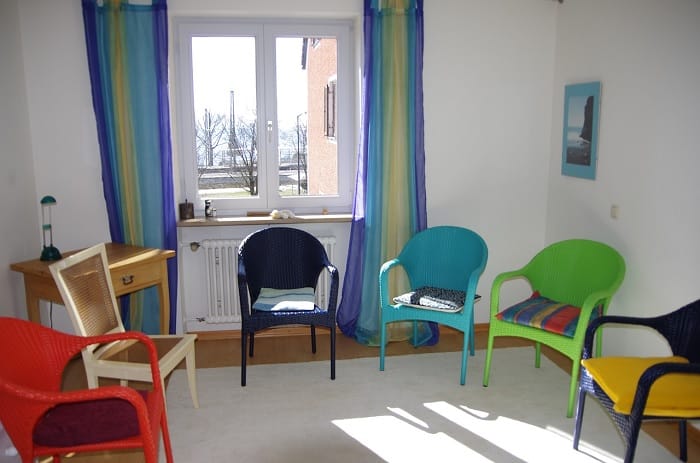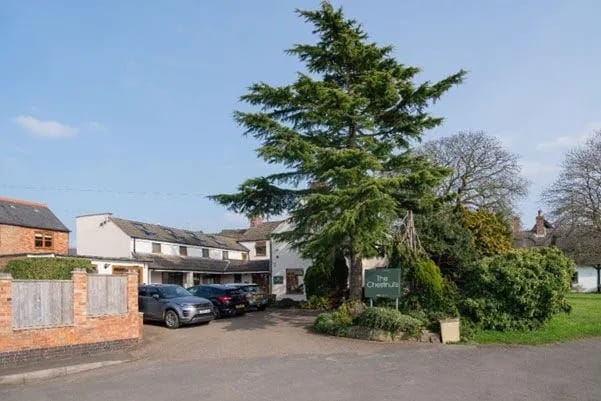At Rehab 4 Addiction we believe addiction is a disease, needing treatment at a drug or alcohol rehab in Leicester.
Like all diseases, addiction must be tackled with scientific and therapeutic methods at a rehab programme in Leicester that lead to long-term recovery.
Despite its negative consequences, people addicted to drugs and alcohol will continue to seek out these substances due to uncontrollable cravings.
When you attend Rehab 4 Addiction’s drug detox and alcohol rehabilitation centre in Leicester, you will begin to untangle your psychological addiction and finally be able to control these cravings without resorting to drug and alcohol use.
Rehab 4 Addiction in Leicester
Address: Eastgate House, 19-23 Humberstone Road, Leicester, Leicestershire, Leicester. LE5 3GJTelephone: 0116 214 7363
Business hours: Open 24 Hours/7 days a week
Services in Leicester: Addiction Treatment, Alcohol Detoxification, Alcohol Rehabilitation, Drug Rehabilitation, Residential Rehab for Addiction, Alcohol Home Detox

To understand the complexities of alcohol and drug addiction and its neurobiology, it’s important to understand the brain’s reward pathways.
Information travels through the VTA area of the brain up to the nucleus acumens and finally to the prefrontal cortex.
This is known as the brain’s ‘reward structure’ or ‘reward pathways.’ Information travels via the neurotransmitter known as ‘dopamine’.
These messages trigger the pleasure-producing chemical known as opioids.
Thanks to this evolved structure contained in your brain, you are able to experience pleasure when you eat food, drink water or have sex.
However, alcohol and drug addiction hijacks this system, so you experience urges to abuse drugs or alcohol.
Specifically, alcohol or drug use alters the way your brain functions.
Long-term abuse of drugs and alcohol alters the chemical and physical structure of your brain, so you crave drugs and alcohol akin to the way you crave sex, water and food.
This is how occasional alcohol use turns into binge drinking, how light substance use becomes heavy, and ultimately how addiction develops.
To learn more about the science of addiction and how drug and alcohol rehab Leicester can help, call us on 0800 140 4690.

Professionally supported drug and alcohol rehabs in the Leicester area are nearly always the best way forward.
If you’re at a stage where your alcohol and drug addiction is having any kind of negative impact on your life and you still can’t stop? That’s the point where you should seek out help.
Alcohol and drug rehab and recovery programmes in Leicester work for all kinds of addictions, from heroin to cocaine, to alcohol. Whatever your issue is, we’ll be there to help support and guide you.
If you’re still not sure if it’s right for you, you could always contact an organisation like Rehab 4 Addiction, which will be able to objectively and professionally assess your situation.

In the early stages of drug and alcohol rehab in Leicester, both the American Society of Addiction Medicine (ASAM) [1] patient placement criteria and the Diagnostic and Statistical Manual of Mental Disorders – Fifth Edition (DSM -5) [2] three levels of severity will be used to analyse your case.
The former of the two uses 6 dimensions specifically to analyse the severity of your case.
These are:
The DSM-5 also has eleven criteria for addiction – but only three levels of severity: mild, moderate and severe.
The severe level is where a problem is defined as an addiction and would require professional treatment in Leicester.
These stages are defined by the number of symptoms. If you have two or three symptoms, you’ll be diagnosed with a mild substance use disorder.
If you have four or five, that will be considered a moderate substance abuse disorder.
Finally, six or more symptoms indicate a severe substance use disorder, which is defined as an addiction as we said previously.
There are many different psychiatric assessments used by psychiatrists and rehab specialists to diagnose and quantify addiction, with some others being the Alcohol Use Disorders Identification Test (AUDIT) [3] and the CAGE Questionnaire. [4]
These tests help to ensure that you experience a bespoke, person-centred care plan, made up of physical and psychiatric treatments that work for your needs.
For more information about measuring the severity of addictions in Leicester, call our helpline today on 0800 140 4690

If you’re concerned about a loved one and can’t get through to them, an intervention might be your best option.
A professional interventionist operating in Leicester will help you in both a traditional intervention and the CRAFT approach.
In a traditional intervention, the friends and family of the person potentially at risk will gather, to air their concerns.
More specifically, they’ll write letters detailing what the person means to them, the ways that the addiction has affected them and how they’d like to move forward in the future.
The CRAFT approach encourages healthy, constructive conversation. While following this, you’ll reward and positively reinforce the person with the addiction.
You’ll also learn how to communicate with them positively, while also taking real steps to live a healthy family lifestyle in Leicester.
CRAFT seems like a handy acronym, but the name actually has a meaning behind it. More specifically, it stands for Community Reinforcement And Family Training. [5]
Beyond even the person suffering from psychological addiction themselves recovering, it’s important that the people around them learn how to deal with the situation appropriately too.
Addiction issues can often fracture all kinds of relationships, including family ones. Through CRAFT, everyone can heal together.
For more guidance about alcohol and drug rehab in Leicester, call us today on 0800 140 4690.

Before we go into detail on addiction treatment, let’s look at what addiction is in a bit more detail.
There are a couple of key criteria for substance abuse disorder according to the Diagnostic and Statistical Manual of Mental Disorders – Fifth Edition, [6] better known as DSM-5.
This manual is used by rehabs across Leicester, and indeed all over the world.
The 11 official ones are:
Get started on your recovery journey in Leicester today by calling us on 0800 140 4690.

This can vary by quite a bit, depending on the kind of addiction that you’re recovering from, as well as its severity. Residential rehab in Leicester could last any time from a month to a few months, to a year.
If you choose to get in touch with Rehab 4 Addiction and join one of our effective recovery programmes in Leicester, we’ll assess you right from the start to determine what you specifically need.
The three factors that could go into this decision are:
Detoxes often last for around 3 weeks, with the absolute minimum for alcohol detox being 7 days.

The price of any kind of rehab in Leicester can vary based on the centre you choose.
The kind of room you choose can also have an impact, as single and multiple occupancy rooms will also have price differences.
Unfortunately, it could also end up being more costly if you have worse issues, as you might need longer and more frequent stays in residential rehab.
It’s important to fully research this, to ensure that you’re financially as well as emotionally prepared.
With Rehab 4 Addiction, a 10-day detox with a single room in Leicester will range from £3,000 to £6,000, while the cost of multiple occupancies will vary from £2,000 to £6,000.
Things can also change depending on how long your stay in rehab is.
For example, a 28-day stay usually costs £6,000 for a multiple occupancy room, while a single occupancy for that length of time would usually be £8,000 to £12,000.
Finally, as we’re going to detail later, home detoxes are also an option. These usually cost around £1,500 and we’re going to have more detail on what they entail a bit later.
Below, we list several drug and alcohol rehabs in Leicester:

Both private and council-funded rehab in Leicester have their benefits.
To start off, private rehab is often more specialised and geared towards your personal needs.
If you go for council-funded rehab in Leicester, you might also have to face long waiting lists.
Council-funded rehab also has a wide variety of fantastic services provided at local NHS Foundation Trusts, including one-to-one support, stabilisation, counselling and relapse prevention, motivational interviewing and assessments for residential rehab.
Like everything else in this process, it all just depends on what you specifically need and what the individual services in Leicester can provide.
Free and NHS-run [7] addiction services available near Leicester include:
Address: 42 High Street, Coalville, LE67 3EE
Telephone: 03303 036 000
Website: https://www.turning-point.co.uk/services/leicestershire
Address: Artemis House, Westcotes House Site, Westcotes Drive, Leicester, LE3 0QU
Telephone: 01162 952 959
Website: https://www.leicspart.nhs.uk/service/child-and-adolescent-mental-health-services-camhs/
Address: 68 Humberstone Gate, Leicester, LE1 3PL
Telephone: 07712 707 999
Website: https://www.dearalbert.co.uk/
There are a number of remote services that could also assist in overcoming addiction, including the National Association for Children of Alcoholics, Change Grow Live, We Are With You, Turning Point and the National Institute for Health and Care Excellence (NICE).
You may also be able to gain temporary residence in a sober living house if your home is not suitable as a recovery environment.

Now let’s look at detoxing, specifically in Leicester. You might be recommended this if you’re not identified as high risk – if you have a more severe addiction, it could be dangerous.
Detox is used when an individual needs to remove every trace of a physically addictive substance from their body, and as such it risks experiencing withdrawal symptoms.
Common drug and alcohol withdrawal symptoms include:
If you are experiencing some of these dangerous symptoms, then it’s much better for you to go into an environment where you’re surrounded by medical professionals and where you can constantly be kept on track.
Regardless, it may be recommended for you to have an at-home detox.
If this does turn out to be your situation, you’ll receive an assessment to determine the exact severity and nature of your addiction, and will then be guided through the rest of your detox from a distance.
In either case, medications are widely used to help limit withdrawal symptoms and make the detox process easier and safer.
This is called a medically-assisted detox, and in the case of alcohol withdrawal syndrome the benzodiazepine Chlordiazepoxide – better known as Librium – is widely used.
In the case of heroin detox, Buprenorphine fulfils a similar role, limiting the worst effects of heroin withdrawal.
The point where you don’t require a detox can vary from substance to substance, and it’s also different with alcohol.
If you’ve gone 24 hours without a drink and aren’t experiencing withdrawal symptoms, you should be fine to move past this first stage.
Only substances that cause physical dependence require a detox, which includes alcohol, ketamine and heroin.
If you are suffering from cocaine addiction, crack cocaine dependence, cannabis use disorder or a behavioural addiction like sex or gambling addiction, you will not need a detox.
And finally, in terms of timings, it might vary slightly based on the organisation you go to and how severe your case is – but alcohol detox of any kind lasts for about 7 to 10 days on average.
For more information about detoxing in Leicester, call us today on 0800 140 4690

Like any other kind of addiction, alcohol withdrawal comes with several risky symptoms.
Unlike drugs which cause a period of manic energy followed by a crash, with cocaine being one of the biggest examples, the withdrawal symptoms of alcohol are mostly physical.
The mildest are probably tremors, while the worst are vomiting, sweating, headaches and anxiety. All of these occur at a point in addiction where your body has adjusted to alcohol.
This is called dependence. This is why we nearly always recommend professional support.
Detoxes can leave a huge emotional impact on both the person going through it and those around them.
As you’ve already seen, the symptoms are often highly unpleasant at best and dangerous at worst, no matter what you’re detoxing from.
But breaking down your physical dependence on drugs and/or alcohol is a vital part of the process, which will allow you to move on to subsequent treatments.
For more advice about handling withdrawal in Leicester, call our team on 0800 140 4690

As we previously mentioned, cocaine is known to cause a period of manic energy, followed by a crash.
As a result, it causes strong psychological withdrawal symptoms, including:
More specifically, cocaine has been linked to neurotransmitters in your brain, which are essentially chemical messengers.
Research has shown cocaine specifically influences:
This then produces a calming effect and helps to prevent seizures in some cases.)
This strong psychological impact then means that cocaine withdrawal requires more focus on mental health.
The key signs of a cocaine addiction might also be more behavioural, as a result of these withdrawal symptoms.
Contingency management, which uses a system of rewards known as “reinforcements”, has also been shown to be highly effective when treating cocaine addiction in particular.
To get started on your cocaine recovery journey in Leicester today, call us on 0800 140 4690

The withdrawal symptoms of heroin are once again more physical.
As it’s an opiate, they’re also among the most extreme in that category, with some of the most common beings:
Heroin use, in particular, activates opioid receptors in the brain, which gives users euphoric feelings and alters pain perception.
It creates a surge of dopamine in your brains’ reward system, which runs from your prefrontal cortex. This then compels the user to try it again, which is why it’s so addictive.
In this case, an increased tolerance doesn’t just result in withdrawal symptoms.
This can also apply to other drugs that can be taken by snorting or smoking – but those who do may soon start injecting themselves if they weren’t doing that already.
This can expose you to a whole host of diseases like HIV, as well as skin infections.
When it comes to detoxing, symptoms usually start about 6 to 8 hours after your last dose, will peak after one to three days and will subside after about a week.
Even after this time symptoms may persist, especially if you have a more severe addiction.
The most effective treatments for heroin addiction are ones that reinforce positive patterns of behaviour.
Three of the biggest examples of this are cognitive behavioural therapy (CBT), contingency management and motivational interviewing.
For guidance of rehab for heroin in Leicester, call us on 0800 140 4690

The withdrawal symptoms for cannabis are generally a mix of physical and psychological.
If you experience any of the following, it’s highly likely that you have a dependence:
Many people like to use cannabis casually, with it even being legal in a lot of places. But long term use does have side effects and there’s potential for addiction there like any other drug.
In fact, around 10% of people who are exposed to it go on to become addicted.
Even in the short term, many people find that they feel nauseous, anxious or paranoid after only using it once.
Overall, cannabis affects your central nervous system, meaning that long term psychological damage can be done with extended use/abuse.
If you experience any of the withdrawal symptoms above or find yourself unable to stop using, you should seek out help.
To begin your cannabis recovery journey at a drug rehab in Leicester, contact our team today on 0800 140 4690

As mental health is such a huge part of addiction, it stands to reason that mental health treatments like therapy and counselling will be a big part of treatment in Leicester.
As we discussed earlier, brief interventions can often help a person in denial see that they need help on a treatment programme.
CognitiveBehavioural Therapy (CBT) and motivational therapy ar talking therapies that can help a person to analyse their current behaviour. In the former specifically, toxic thinking and behaviour patterns will be rooted out.
In the latter, a series of non-judgmental questions will encourage you to re-examine your previous actions.
Dialectical Behavioural Therapy (DBT) meanwhile, is built on the same model as Cognitive Behavioural Therapy. But here there’s a stronger focus on emotions and more specifically controlling them.
Holistic therapies, meanwhile, put the focus on a particular activity. Art and music therapy, for example, allow you to express yourself creatively while you heal.
The specific holistic therapies a rehab in Leicester can offer does of course depend on its resources, staff and location.
Co-dependency means sacrificing your needs for the sake of others. This often occurs in any type of relationship where someone has an addiction.
The person on the opposite side of it can feel like they need to take care of the person suffering, but this can become toxic and unhealthy in the long run.
Treatment to help you both heal from this could be something to consider.
Healing amongst people with similar experiences can also be highly important. As a result, group therapy and group psychotherapy is often used for both inpatient and outpatient treatment.
This is also why support groups and fellowship groups are so commonly used.
As the name would suggest, twelve-step facilitation therapy means following 12 step programmes. These self-help groups use 12 essential stages to get you through treatment at a treatment centre and addiction recovery.
The three key ideas at the centre of this are:
On the opposite side of things to group therapy, individual therapy will allow you to truly work through your trauma.
Finally, addiction can also have an extremely negative impact on a family – so family therapy could also be good for everyone involved.
These are just a few of the therapies available at drug and alcohol rehab in Leicester, with some of the others being:
For more advice about the types of therapy available at a drug and alcohol rehab in Leicester, call us today on 0800 140 4690

Many people about to go through addiction treatment may also be facing multiple diagnoses. They could have a multitude of mental health issues.
These can sometimes be a reason for addiction starting in the first place, or they could be caused by continual drug and/or alcohol abuse.
Commonly experienced mental health problems include:
The chemical impact that both drugs and alcohol have on your brain is known to cause conditions such as anxiety and depression.
Part of the reason why they’re so addictive and why they produce the effects that they do is because of the way they affect your mind.
Many people also end up with addictions due to underlying mental health issues. These will also need to be dealt with for you to move forward.
You don’t need to be worried if you have a multitude of issues – Rehab 4 Addiction is fully equipped to deal with a variety of addiction issues, meaning everything you need to heal from will be covered.
You can also find general mental health support at Rethink Mental Illness, Papyrus, Young Minds, Samaritans and Mind UK.
It is also worth noting that many physical conditions co-occur with addiction, such as heart disease, liver failure, various cancers and alcoholic hepatitis. These conditions will also be considered under the auspices of a dual diagnosis and dealt with accordingly.

Once you’ve completed your initial treatment and are at the aftercare stage, relapse prevention planning will also come into play.
The exact plan to (hopefully) prevent relapse and make the impacts of one less severe if it does happen, needs a few essential items.
One of those is a list of any potential triggers and cravings, so you can become aware and can avoid them, as well as the coping mechanisms you developed whilst at rehab.
Similarly, you might also need to make a list of lifestyle changes that will have to happen in order for you to maintain sobriety.
This could include your job, relationships, your living situation, or anything else that was triggering you before.
You should always, always talk it through with experts before making any dramatic life changes. But it could be what’s best for your future.
Finally, as we briefly mentioned before, any good relapse prevention plan will also include a strategy for if the worst happens.
This should be exactly what should be done in this scenario, as well as any necessary contact details.
This doesn’t just include professionals – it could be support people in your life or loved ones who fulfil the same role.
The important thing is that all the people who need to be there can get to you in an emergency.
Get started on your recovery journey today! Call our 24hr Helpline today: 0800 140 4690

When you attend treatment in Leicester, you are educated on how the disease of addiction arises. This knowledge empowers you in your fight against addiction.
Understanding how the disease of addiction works allows you to consciously understand your destructive behaviours and also arms you with strategies to finally defeat your addiction once and for all.

It’s very difficult for people to stop drug or alcohol use when an addiction to these substances has arisen.
Self-medication through substance misuse becomes a way to ‘soothe’ the self when natural self-soothing mechanisms have not been developed in early childhood.
For instance, a child may be left crying for a long period of time without being picked up or a child may be abused or humiliated on a consistent basis.
This trauma interferes with self-soothing mechanisms that develop during early childhood.
It’s important to keep in mind that as much as a person wishes to stop their drug or alcohol use, cravings make it difficult to stop.
It makes sense that this ambivalence towards addiction exists because alcohol and drug use is a way to adapt to stress and conflict.
These substances are usually viewed as a ‘friend’ during periods of loneliness and a way to feel comfortable during social interactions.
It’s thus understandable why many addicts struggle to ‘let go’ of this ‘friend’ manifesting itself in the form of addiction that needs treatment at a rehab in Leicester.

Rehab 4 Addiction’s team of dedicated therapists help our patients recognise these ‘triggers of addiction’.
We achieve this by offering a range of therapeutic techniques such as voice therapy, psychotherapy, Cognitive Behavioural Therapy (CBT) and rational emotive behaviour therapy.
Therapy is often given on a residential basis in Leicester. This means patients are removed from their normal environment whilst therapy is given.
For more information about how to spot triggers and avoid them in Leicester, call our team on 0800 140 4690

When we treat people with drug or alcohol addiction in Leicester, it’s important that we suspend what we think the patient wants or what we feel is a suitable treatment approach.
We instead listen to what the person wants as they struggle with their drug or alcohol addiction.
When we listen and investigate, we gain insight into their reasons for continuing to abuse drugs and alcohol.
Above all, no particular treatment is ever ‘imposed’ on any of our clients – every rehab in Leicester treats only those who want to recover.

Substance users are commonly plagued with feelings of guilt and self-attacks.
This shame often results in depression, psychosomatic illness and thought confusion.
Many of these people may be resistant to the idea of seeking therapy in Leicester.
For this reason, many of our patients often take a ‘step back‘ in their therapy until real progress is made.
At Rehab 4 Addiction, we do not impose pressure on our patients to make immediate progress.
Instead, we create a relaxing and calming therapeutic environment where patients are allowed to make progress at their own pace.
For more help in overcoming internalised shame and seeking support in Leicester, call us today on 0800 140 4690

At Rehab 4 Addiction, we solely provide abstinence-based recovery programmes.
This means patients are encouraged and given the tools to eliminate drugs and alcohol from their lives entirely.
However, patients may experience feelings of failure when they cannot meet the abstinence expectation.
For this reason, our patients are taught to avoid relapse and to view relapse as part of their journey to long-term recovery should it occur.
To reduce the risk of relapse, we offer a generous aftercare service in Leicester. This service is free of charge and included in all the rehabilitation and detoxification plans we offer.
To learn more about using abstinence-based recovery methods in Leicester, call us on 0800 140 4690

If residential rehab in Leicester really isn’t for you, there are alternative options.
You could get treatment options through your GP – or you could attend support groups in Leicester, outside of a specified treatment plan. These will allow you to connect with people who’ve had similar experiences.
You can share your story with them and hear their stories in return, which is very freeing for a lot of people.
Whichever way you go, any kind of treatment is better than not getting help at all. If you’re struggling in any way, please reach out.
Another option is to attend a local fellowship group in Leicester. Examples include:

Whether you decide to go down the inpatient treatment route, or you prefer to join one of the many outpatient programmes available in Leicester, recovery is possible.
To access Rehab 4 Addiction’s revolutionary drug and alcohol rehabilitation treatment in Leicester, contact our admissions team today without delay on 0800 140 4690.
Alternatively, contact us through our website. We offer a range of detox and rehab options in Leicester to suit most addictions and mental health issues. Get started on your drug or alcohol rehab recovery journey today!
Every rehab in England and Wales that we work with is vetted by the CQC Care Quality Commission. [14]
You can get help for all kinds of addictions such as benzodiazepines addiction, cannabis addiction, crystal meth addiction, fentanyl addiction, GBL addiction, ketamine addiction, methadone addiction, or any other substance abuse addiction or other behavioural addictions like gaming addiction or sex addiction.
Get help for addiction anywhere in Leicestershire, including Melton Mowbray, Coalville, Longborough, Hinckley, Kegworth, Market Harborough, Oadby, Quorn, Mountsorrel, Barrow upon Soar, Lutterworth, Sileby, Broughton Astley, Wigston, Shepshed, Blaby, Castle Donington, Ashby Parva, Ibstock, Fleckney, Anstey, Groby, Birstall, Barlestone, Countesthorpe, Narborough, Cosby, Markfield, Market Bosworth, Enderby, Syston, Barkby, Billesdon and many others.
This article was written by Boris Mackey. You can connect with Boris online at LinkedIn or X.com.
References for the nearest CQC registered rehab in Leicester and near Leicester
 Addiction is often largely misunderstood, with many incorrectly labelling it as a lack of willpower, a moral failing or something that happens after a series of bad choices. When, actually, addiction is much more complex. It can be shaped by a number of things, such as trauma, mental health, the environment you grew up in […] .... Read More
Addiction is often largely misunderstood, with many incorrectly labelling it as a lack of willpower, a moral failing or something that happens after a series of bad choices. When, actually, addiction is much more complex. It can be shaped by a number of things, such as trauma, mental health, the environment you grew up in […] .... Read More